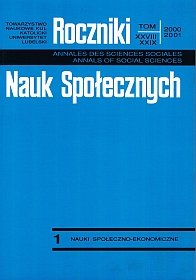Prywatyzacja w szkolnictwie wyższym: wyłaniająca się powszechność w erze wielości nowoczesności
Abstrakt
Under the impact of globalising market forces, public funding to higher education systems in many parts of the world has been reduced on a per capita basis, even as student enrolments continue to increase. Paralleling this phenomenon has been rapid privatisation of the university sector, achieved through the transfer of costs to the community, either through state universities imposing student fees or new private institutions being established. The paper analyses the course of privatisation in the higher education systems of Poland, Iran, Australia and the Philippines and concludes that the various privatisation pathways being followed are reflective of the differing national traditions of the countries concerned.
Bibliografia
Barandan A., Relacja bezpośrednia, 1998.
Bazagran A., From Self-Evaluation to Accreditation for Quality Improvements in Higher Education: Recent Trends in Iran and Outlines of aModel, referat przedstawiony podczas regionalnego seminarium poświęconego szkolnictwu wyższemu wnadchodzącym stuleciu (Regional Seminar on Higher Education in the Coming Century), Komisja Krajowa (National Commission) UNESCO, Teheran, 18-20 lutego 1998.
Ben - Rafael E., Contemporary Multiculturalism, referat przedstawiony na czternastym Światowym Kongresie Socjologicznym wMontrealu, 26 lipca – 1sierpnia 1998.
Boumelha P., Arts: Revival of the Fittest, „Higher Education Supplements” (nr948), „The Australian”, 2 września 1998, s.37-43.
Congressional Commission on Education, Making Education Work, Congress of the Republic of the Philippines, Manila−Quezon City, 1991.
Costa H.de la, The Jesuits of the Philippines, 1581-1768, Harvard University Press, Cambridge Mass. 1961.
Davies N., Europe – AHistory, Oxford University Press, Oxford 1996, s.469-576.
Department of Employment, Education and Training, Higher Education Division, National Report on Australia's Higher Education Sector, Australian Government Publishing Service, Canberra 1993.
Eisenstadt S.N., Introductory Address (przemówienie otwierające Światowy Kongres Międzynarodowego Instytutu Socjologicznego wKolonii, lipiec 1997).
Eisenstadt S.N., The Jacobin Component of Fundamentalist Movements, „Contention”, 5(1996), nr3, s.156-165.
Farjadi G.A., Identifying the Origins of the Educated Unemployment and Increasing Demands for Higher Education in Iran, referat przedstawiony podczas regionalnego seminarium poświęconego szkolnictwu wyższemu wnadchodzącym stuleciu (Regional Seminar on Higher Education in the Coming Century), Komisja Krajowa (National Commission) UNESCO, Teheran, 18-20 lutego 1998.
Frye R.N., The Golden Age of Persia, Weidenfeld, Londyn 1975.
Halecki O., Sacrum Poloniae Millennium (A Thousand Years of Catholic Poland), Uniwersytet Gregorianum, Rzym 1966, s.316-349.
Healy G., The Australian Higher Education Supplement, „The Australian”, 19 sierpnia 1998, s.35.
Hugo G., The Demographic Underpinning of Current and Future International Migration in Asia, „Asian and Pacific Migration Journal”, 1998, vol. 7, nr1, s.1-26.
Institute for Research and Planning in Higher Education (IRPHE), Statistics of Higher Education in Iran, IRPHE, Teheran 1997.
Ishitsuka S., AThematisation of the Post-Modern Situation – aSociological Theory, referat przedstawiony na czternastym Światowym Kongresie Socjologicznym wMontrealu, 26 lipca – 1 sierpnia 1998.
MacKenzie P.A., Australia, w: International Encyclopaedia of National Systems of Education, red. T.Neville Postlethwaite, Pergamon Press, London 1995, s.43.
Mansouri R., The Role of Higher Education in Iran and the Society's Needs, referat przedstawiony podczas regionalnego seminarium poświęconego szkolnictwu wyższemu wnadchodzącym stuleciu (Regional Seminar on Higher Education in the Coming Century), Komisja Krajowa (National Commission) UNESCO, Teheran, 18-20 lutego 1998.
National Office of Overseas Skills Recognition, Country Education Profiles: Australia, Department of Employment, Education and Training, Canberra 1995 (wyd. 2).
National Office of Overseas Skills Recognition, Country Education Profiles: The Philippines, Department of Employment, Education and Training, Canberra 1995 (wyd. 2).
National Office of Overseas Skills Recognition (Department of Employment, Education and Training), Country Education Profiles, Australian Government Publishing Service, Canberra 1992-1996, zestaw I: Europa, 24 woluminy, grudzień 1992; zestaw II: Afryka, 9 woluminów, sierpień 1993; zestaw II: Subkontynent azjatycki iBliski Wschód, 17 woluminów, maj 1992; zestaw IV: Australia ijej najbliżsi sąsiedzi: południowo-wschodnia ipółnocno-wschodnia Azja irejon Pacyfiku, 20 woluminów, 1996 (wyd. 2); zestaw V: Ameryki, 16 woluminów, czerwiec 1993.
Pelczar A., Elements of the Background of the Quality Assurance System in Poland, Regional Training Seminar for Quality Assurance in Higher Education: Self Assessment and Peer Review, Budapeszt, 11-16 listopada 1996.
Richardson J., Study Warns of Great Divide, „The Australian”, 28 lipca 1998, s.35.
Sabagh G., Future Population Trends and their Implications for Higher Education in the Twenty-First Century: The Case of Eastern and South Asian Countries, referat przedstawiony podczas regionalnego seminarium poświęconego szkolnictwu wyższemu wnadchodzącym stuleciu (Regional Seminar on Higher Education in the Coming Century), Komisja Krajowa (National Commission) UNESCO, Teheran, 18-20 lutego 1998.
Sandoval G., Mangahas M., Guerrero L., The Situation of Filipino Youth: ANational Survey. Artykuł przedstawiony na 14. Światowym Kongresie Socjologicznym wMontrealu w1998.
Smolicz J.J., Non-Government Higher Educational Institutions in Poland (materiał niepublikowany), 1997.
Smolicz J.J., The Iranian Higher Education: From State to Private and Back Under State Patronage (materiał niepublikowany), 1998.
Smolicz J.J., Evaluation of University and College Qualifications in the Philippines, w: Studies in Comparative Education: The Philippines (Research paper No. 3), Department of Employment, Education and Training, Canberra 1990.
Smolicz J.J., Nation, State and Ethnic Minorities from an Euro-Muslim Perspective, „Muslim Education Quarterly”, 14(1993), nr1, s.14-26.
Smolicz J.J., Polarity of Filipino Values, „Asian Migrant”, 3(1990), nr4, s.127-132.
Smolicz J.J., Nical I., Exporting the European Idea of aNational Language: Some Educational Implications and the Use of English and Indigenous Languages in the Philippines, „International Review of Education”, 43(1997), nr5-6, s.507-526.
Smolicz J.J., Woźniak A., Smolicz C.iin., In Search of Talent: From Poland to Australia, Centre for Intercultural Studies and Multicultural Education (CISME), Adelaide 1993.
Szczepański J., Systems of Higher Education: Poland, ICED, New York 1978.
Szczepański J., Socjologiczne zagadnienia wyższego wykształcenia, PAN, Warszawa 1983.
Taylor T., GoughJ., Bandrock V., Winter R., ABleak Outlook: Academic Staff Perceptions of Changes in Core Activities in Australian Higher Education 1991-1996, „Studies in Higher Education”, London 1996.
Copyright (c) 2001 Roczniki Nauk Społecznych

Utwór dostępny jest na licencji Creative Commons Uznanie autorstwa – Użycie niekomercyjne – Bez utworów zależnych 4.0 Międzynarodowe.


